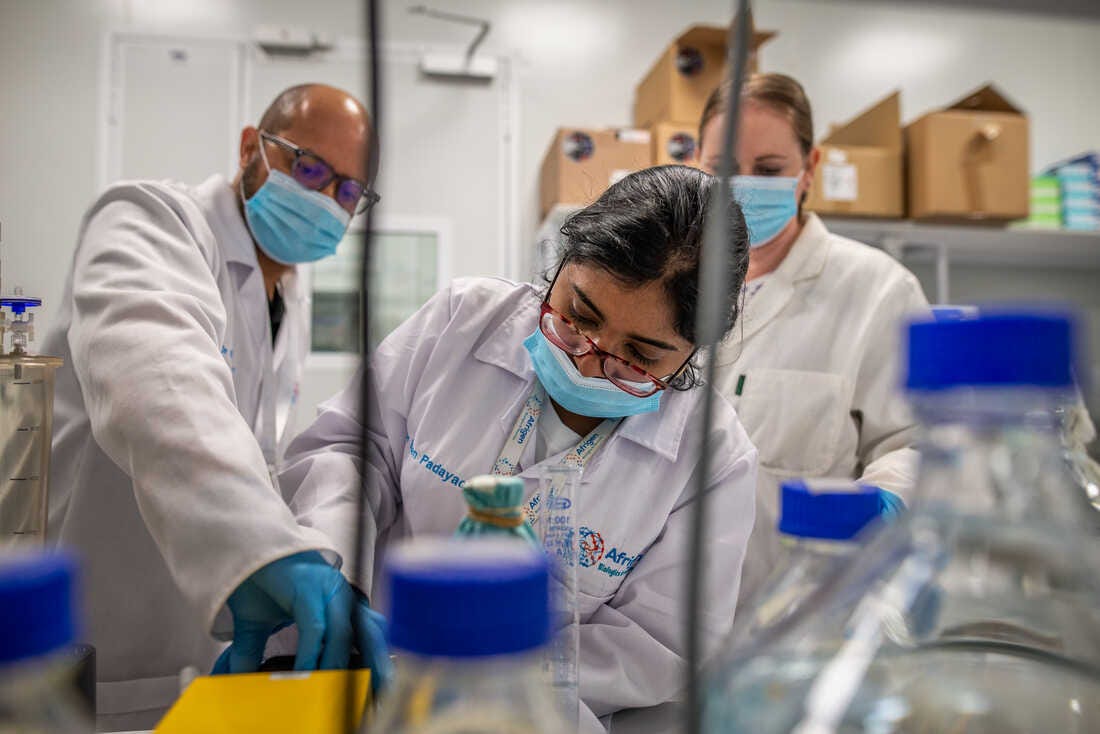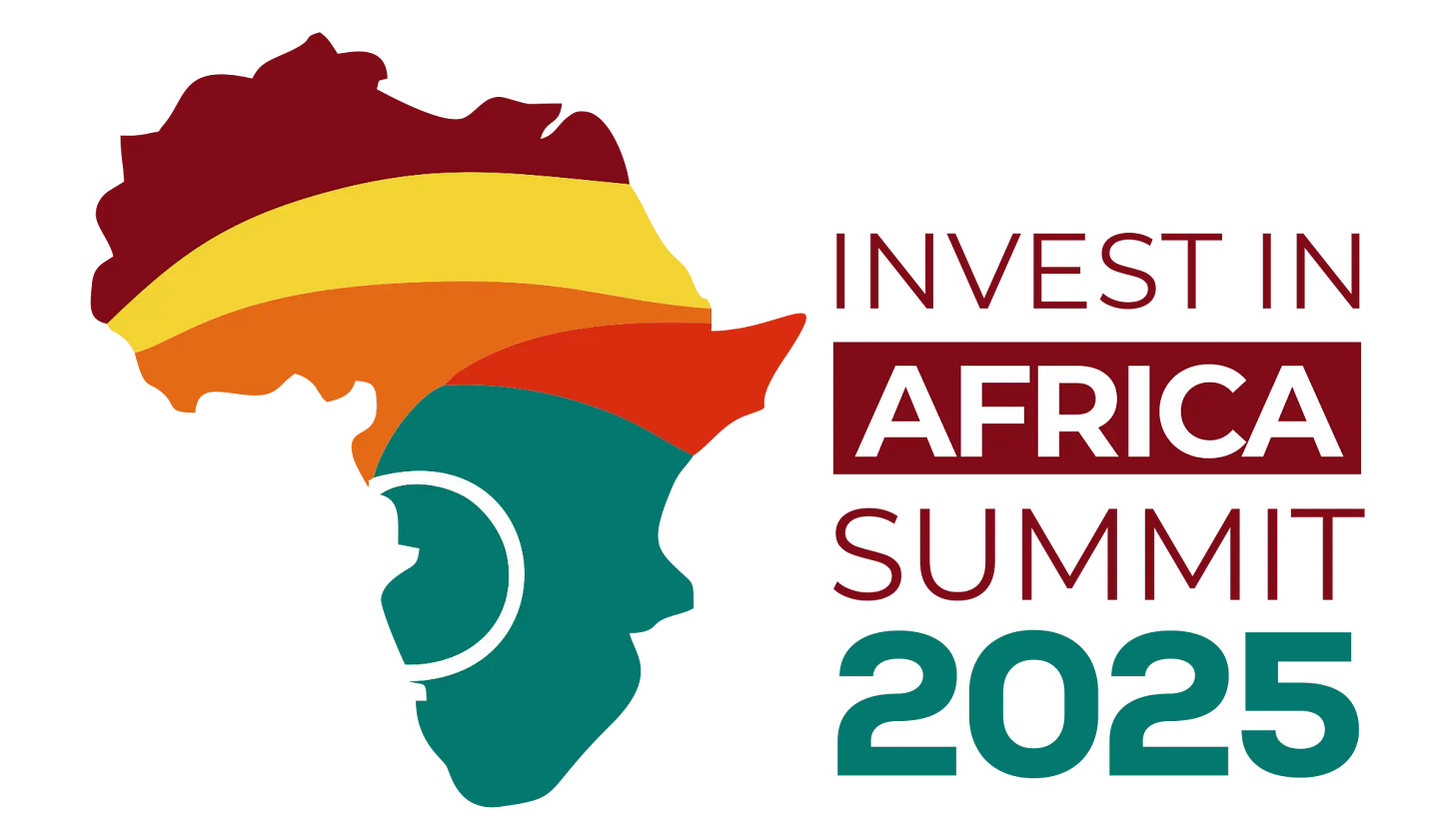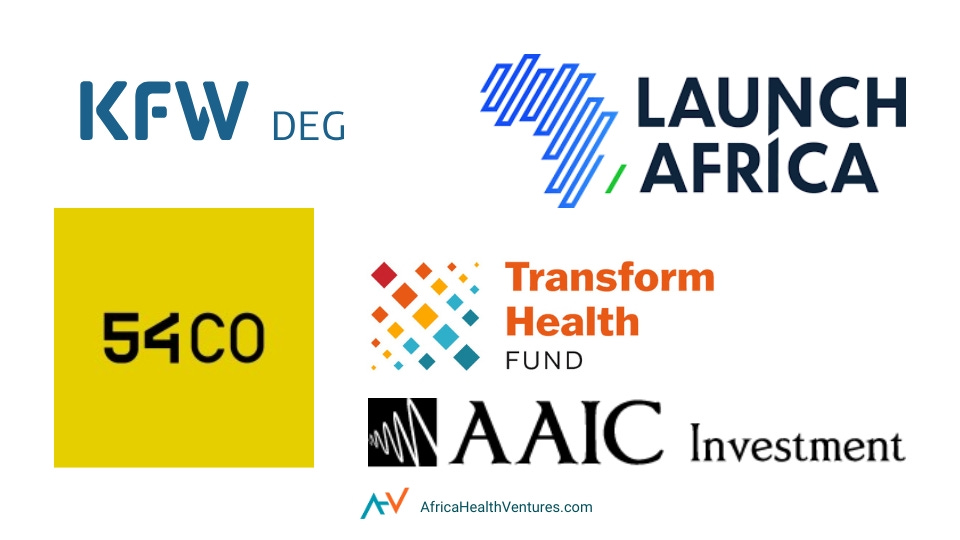Africa Health Ventures #13: Chaos
Today is a turning point for healthcare in Africa

It’s been a wild week for healthcare in Africa, with chaos originating from the other side of the Atlantic.
Today USAID, the US government entity responsible for foreign aid, announced that nearly all USAID’s 10,000 staff will be placed on administrative leave. American staff based in Africa have 30 days to pack their bags and go home.
For context, USAID disbursed $44 billion in the 2023 fiscal year. Of that, we estimate almost $10 billion went to healthcare and humanitarian assistance in Africa. This funding is used to deliver healthcare in Africa through governments, healthcare businesses, and nonprofits. Earlier, the US also withdrew from the World Health Organization (WHO) creating a funding gap of half a billion dollars.

Last week, multiple million-dollar healthcare programs across Africa received stop-work orders. This week layoffs and project closures are being announced for many organizations receiving USAID funding. While American aid is not ending, all signs point to USAID merging into the U.S. Department of State. This will create significant changes to its budget, priorities, and staff.
So. What now?
For those of you who bear the torch of healthcare in Africa, our work is more important now than ever.
If you are a philanthropist: USAID supplies 4 out of 10 humanitarian dollars in the world. The short-term humanitarian gap is real. The Ebola outbreak in Uganda is being neglected. The crisis is deepening in the eastern Democratic Republic of the Congo. Medicines are being locked away from people with HIV in South Africa. Donate to organizations like GiveDirectly, the Red Cross, and Doctors Without Borders to address the humanitarian gap.
If you are a healthcare founder, business, or nonprofit: There is a market gap that healthcare social enterprises can address. Necessity is the mother of invention, and we need lean, innovative organizations with diverse revenue streams to address that need. Stay alert, read this newsletter, pay attention to the opportunities that arise in the vacuum left by USAID.
Now is also a great time to hire talent. Here are two job boards well suited to capture the talent recently on the market: ImpactSource and Idealist.
For African-led businesses, while the short term is chaotic, the long term may be brighter. Critiques of USAID claimed not enough funding was reaching recipient countries; that the system was inefficient; and that aid programs were competing with local markets and businesses. If these flaws can be addressed, it might mean more funding flowing more efficiently towards African businesses.
If you are an investor: there are efficient, scalable healthcare businesses that can rise to the opportunity of this moment and sustainably provide healthcare to many tiers of Africa’s exploding population. If you want to be a part of that story, if you’re looking for referrals to make a direct investment, or you want exposure to a diversified set of healthcare businesses through Africa Health Ventures, just reply to this email.
If you’re looking for a job: check out ImpactSource or Idealist.
Today is a turning point. One way or another, change is here. While American aid is in flux, the demand for healthcare isn’t going anywhere. Look for your opportunity to make an outsized impact amidst this chaos.
If someone forwarded you this email, subscribe to get future editions every month in your inbox. You can unsubscribe at any time, and we don’t share your email with anyone.
Deals
Read on to learn about 7 deals, 11 events, and 14 funding opportunities. All unaffected by what’s happening with USAID.

🧬 Afrigen Biologics, a South African biotech company, won a $6.2 million grant from the Coalition for Epidemic Preparedness Innovations (CEPI) to develop the first mRNA vaccine for Rift Valley Fever. Afrigen Biologics develops, manufactures and supplies vaccines and related biotherapeutics for local and international markets.
🏥 Eyone secured $1 million investment from Senegalese telecom company Sonatel. The company operates a digital healthcare platform that enables real-time access to medical records across healthcare facilities. Telecom operators are a force to contend with in Africa’s digital economy, and it’s notable to see one engaging with a healthtech in this way at such an early stage.
💊 PBR Life Sciences raised $1 million in pre-seed funding from Launch Africa Ventures, Microtraction, Kaleo Ventures, Octerra Capital, Marula Square, XA Africa, ARM Labs, and Techstars. They are building a healthcare data aggregator and analytics platform across Nigeria, Ghana, and Kenya.
🔬 Ilara Health secured a $1 million loan to upgrade private outpatient clinics delivering care to underserved communities in Kenya through procurement of diagnostic devices, health management technology, and pharmaceutical products.
🛍️ Saviu Ventures exited its entire stake in Lapaire, a low-cost eyeglasses company, to Creadev. This transaction allowed them to return “several times the investment cost” to its investors. Lapaire provides affordable eyeglasses and eye care services through tech-enabled optical shops across several African countries.
🩻 Envisionit Deep AI received $100K from develoPPP Ventures, a funding program from the German government through GIZ. The company uses AI to improve the accuracy of medical imaging diagnostics such as X-Rays. At the same time, Envisionit announced a collaboration partnership with the global pharma company Bayer.
🧬 Biocode secured $100K also from develoPPP to develop diagnostics for inflammation and blood clots.
💰 AfricInvest Small Cap fund secured €10 million in funding from French development finance institution Proparco. The fund invests in small and medium-sized African companies in key sectors such as health, education, and agriculture.
Events
Feb 7-8 in Cambridge USA: the Africa Health Conference (AHC) takes place at Harvard Medical School with the theme “Building Sustainable Systems: Health Financing and Innovation for Africa”.
Feb 12-13 in Nairobi: Africa Tech Summit brings together tech leaders, corporates, investors, entrepreneurs, and media to drive business and investment in tech in Africa.
Feb 16-19 in Nashville: ViVE focuses on the business of healthcare transformation, bringing together digital health leaders, investors, startups, policymakers, and healthcare providers in the USA.
Feb 20 in Atlanta: Innovating and Implementing in Global Health for a Sustainable Future is a workshop held alongside CUGH, the consortium of universities for global health in the USA.
Feb 26-27 in Nairobi: Sankalp Africa Summit focuses on impact investing and entrepreneurship in Africa, bringing together impact investors, social entrepreneurs, and ecosystem players to catalyze investments in the region.
March 14-15 in Oxford, UK: Oxford Africa Business Forum connects African business leaders, policymakers, and professionals to discuss key issues affecting the continent's development and future prospects.
April 1-4 in Oxford, UK: the Skoll World Forum brings together social entrepreneurs, foundations, politicians, and thought leaders to accelerate solutions to the world's most pressing problems.
April 12-13 in Cambridge, USA: the HBS Africa Business Conference by Harvard Business School’s Africa Business Club explores business opportunities and challenges in Africa.
April 29-30 in The Hague: Invest in Africa Summit connects African businesses with European investors.
Opportunities
Ongoing: Africa Health Venture makes equity investments into seed-stage healthtech startup in Africa that will dramatically improve access and quality of healthcare on the continent and around the world. Apply on the website.
Due Feb 15: AI for Humanitarians Challenge from Elrha invites humanitarian practitioners to apply for grants up to £25,000 to explore how artificial intelligence can ethically improve humanitarian response in crisis-affected communities.
Due Feb 15: Dimagi has released an opportunity for organizations from Nigeria, Democratic Republic of the Congo, Sudan, and other low- and middle-income countries to apply for grants ranging from $10K to $50K to implement child health campaigns.
Due Feb 17: Data for Health Global Grants Program invites ministries of health, statistical agencies, and other relevant agencies in low- and middle-income countries to apply for grants up to $100,000 to strengthen public health data systems and improve data use for decision-making in their communities.
Due Feb 18: The Wellcome Trust's Climate and Health Award funds transdisciplinary research teams in low- and middle-income countries (LMICs) to investigate the health effects of climate change mitigation interventions.
Due Feb 18: Bayer Foundation’s Women Empowerment Award invites female entrepreneurs to apply for up to €25,000 in funding to scale social innovations that improve health or food security in Africa, Asia, Latin America, or the Middle East.
Due Feb 28: Investing in Innovation from Salient Advisory and SCIDaR is inviting African healthtech startups to apply for its third cohort. This program will provide 5-7 startups with up to $225K in risk-tolerant funding as well as access to a network of leading global healthcare organizations.
Due Feb 28: as part of its Solutions for Healthy Communities grants program, Merck invites organizations to apply for grants ranging from $50,000 to $300,000 to implement innovative solutions that address critical health equity challenges in underserved communities.
Due Feb 28: Home-Grown Solutions Accelerator (HGS) invites African innovators with advisory, investment readiness, and strategic partnerships to develop locally-driven solutions that strengthen pandemic preparedness and response across Africa. Apply here. More details here. HGS is co-founded by the African Union Development Agency (AUDA-NEPAD) and financially supported by the Japan International Cooperation Agency (JICA).
Due Mar 1: Google.org Accelerator: Generative AI invites African startups and nonprofits leveraging generative AI to apply for a 6-month program including $500K to $2 million in funding.
Due Mar 17: Africa Oxford Health Innovation Programme invites African healthcare innovators to apply for a 4-month accelerator program that provides training, mentorship and networking opportunities to develop solutions addressing local health challenges.
Due April 24: The Grand Challenges Canada program has launched its "Play, Learn, Thrive" initiative offering seed grants of up to $250,000 CAD for innovations supporting early childhood development and education in emergencies.
Ongoing: KPMG Female Founders in Africa Competition: This competition seeks ambitious, high-growth ventures led by women, providing support, resources, and networking opportunities.
Ongoing: The Draper Richards Kaplan (DRK) Foundation offers funding for early-stage social enterprises addressing critical social or environmental issues. They provide up to $300,000 in unrestricted capital over three years, along with operational and technical support including board participation.
The Segal Family Foundation recently published a directory of funders actively supporting healthcare and other sectors in Africa.
The State of HealthTech in Africa
In case you missed it, last week we released our annual review of healthcare startups, funding, and investors in Africa in 2024. In brief: the funding winter is real.
That’s a wrap for this month. Hit ‘reply’ if you have any reactions, or to share any job boards, deals, news, or events to include in our next newsletter. You can also:
👍 Follow us on LinkedIn
🪙 Nominate a startup for seed funding
🤝🏻 Invest with us
🎙️ Subscribe to the podcast on Spotify, Apple or wherever you get your podcasts.
We’ll be back next month with the fallout from all of this. Thanks for reading!




on the positive side, could the end of USAID help change perspective on Africa? Isn't the helping mantra outdated? Doesn't Africa need self-governance, universities, and development, rather than humanitarian aid? I do not know enough about USAID but I saw many international help initiatives who went astray. Here is one, the Great Green Wall: https://nomadicmind.substack.com/p/the-great-green-smoke?r=31fxoh